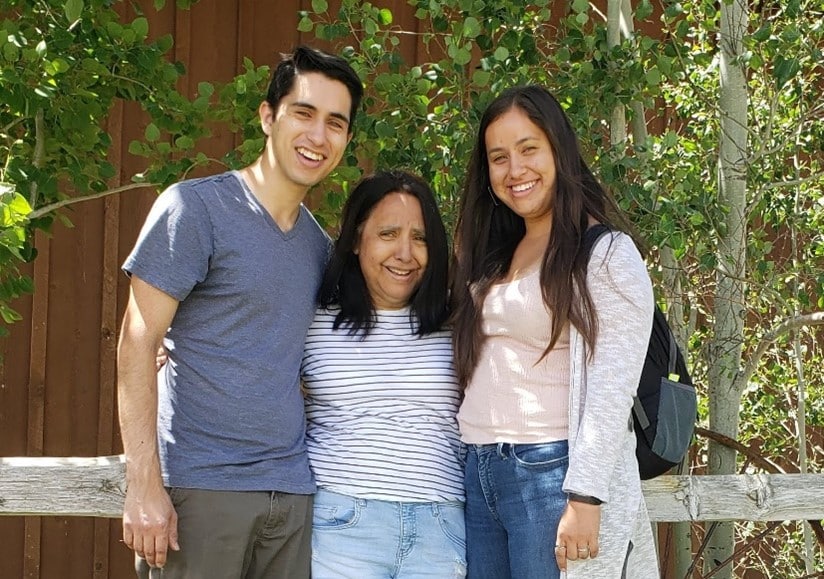Worte der Ermutigung: Fürsorge für die Pflegekraft

by Brandon F.
At 24 years old, and as a full-time caregiver for my mom for the past five years, I’ve received an involuntary education – a crash course in “life with FTD.” In my mom’s case, the cause of her FTD is a mutation of the VCP gene. The onset of her disease led me to drop out of college at 19 years old, so that I could become the head of our household and take care of her and my younger sister. The job of being a caregiver and advocate for someone who has difficulty reasoning, understanding, and speaking is critical: First, to ensure that they receive the correct diagnosis, and then to provide the best possible quality of life, while advocating for treatment and a cure.
Throughout the diagnostic process, doctors, clinicians, and social workers all offered me the same advice: “Be sure to take care of yourself.” As a 19-year-old taking on the role of caregiver for the first time, I couldn’t fully comprehend what they meant, and frankly, I didn’t think those offering the advice actually understood all of the responsibility that now rested on my shoulders. So, while I would respond with the words, “I will, thanks,” in reality I was politely disregarding their guidance.
I realize now that I adopted the false belief that being a good caregiver necessitates dedicating 100% of your time, energy, and focus solely to caring for your loved one. Slowly (and somewhat begrudgingly), I’ve come to the conclusion that perfection is not possible. After wearing myself down and out, I’ve learned firsthand that we all need rest in order to be an effective caregiver.
When I reflect on the sacrifices that I – and all FTD caregivers and advocates – make, one thing that motivates me is knowing that I still get to direct my own life, even if only in small ways. I can prioritize simple joys, such as listening to music that I love, or getting my fix of a food that I’ve been craving. Conversely, my mom no longer has the ability to control even the smallest and most routine aspects of her life. She doesn’t get to choose how she interacts with the world. And while I can never fully compensate for this loss, I can continue to provide her with the best possible quality of life.
While advocating for my mom remains my top priority, I also realize that to be the persistent advocate and dedicated caregiver that my mom needs and deserves, I must also devote time and energy to self-care. Our parent-child roles may have been reversed by FTD, but I know that my mom’s love for me remains, and if she could, she would tell me to take just as good care of myself as I am taking of her.
Nach Kategorie
Unsere Newsletter
Bleib informiert
Melden Sie sich jetzt an und bleiben Sie mit unserem Newsletter, Veranstaltungsbenachrichtigungen und mehr auf dem Laufenden …
